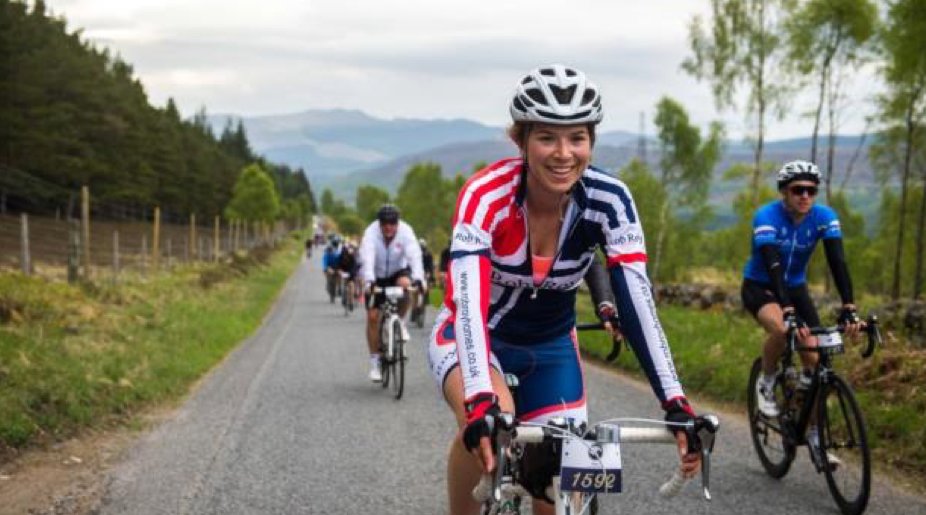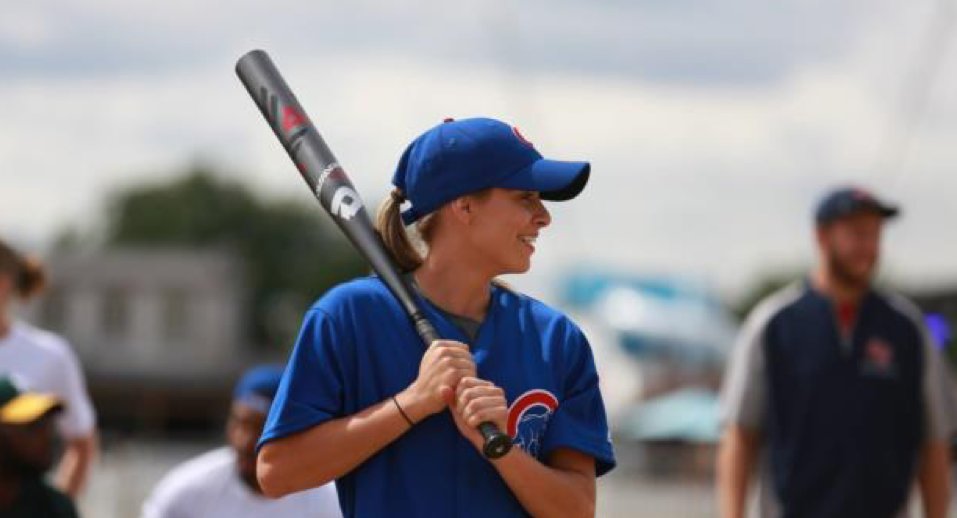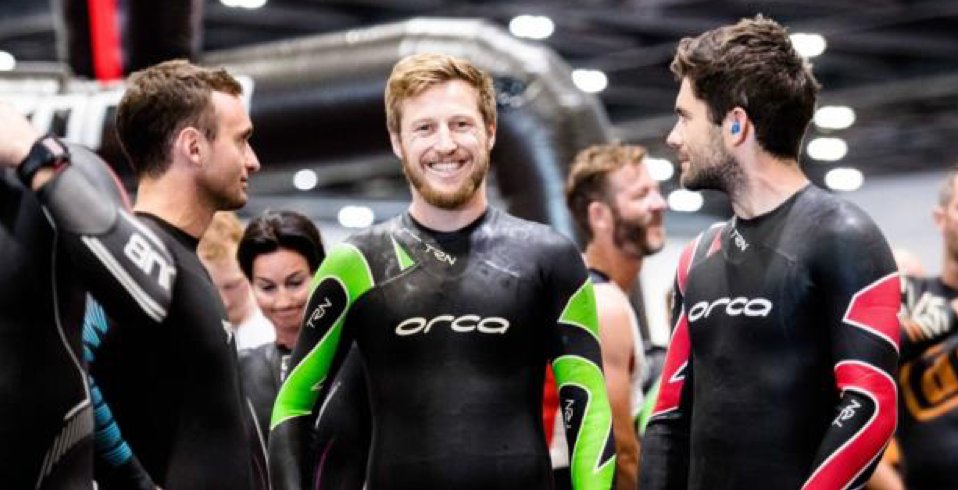Search the latest and greatest job opportunities in sport

After more than 20 years of growth, the mass participation events sector is faced with unprecedented challenges and must change to attract new brand partners, says Craig Dews, Limelight Sports Group’s CEO.
While it is elite sport that grabs the headlines (and the vast majority of commercial sponsorship revenues), there has been an upsurge in events catering for the everyday athlete in disciplines such as running, cycling and triathlon.
From the early days of the London Marathon (which launched in 1981) to the more recent evolution of obstacle racing, people have been inspired to participate by worthwhile causes and health and fitness and self-improvement concerns, and the trend has been picked up on by governing bodies and brands, as well as by the public.
The industry faces many obstacles to growth – public roads and spaces are at saturation point, licensing, insurance and health and safety costs are increasing rapidly and marketing is a challenge, with the sheer number of events now available to the discerning athlete, which has led to a fall in participation numbers in some cases.
Further adding to the challenges faced by organisers is a shift away from ‘traditional’ sponsorships by brands that are turned off by rigid rights and rate cards.
However, the Limelight Sports agency, which is based in London and has 25 years of experience in connecting brands with mass participation events, remains optimistic about the future, as shown by its recent move to take on responsibility for running and promoting three prominent domestic events, the London and Blenheim Palace Triathlons and the Etape Caledonia cycling event, all the properties of IMG.
 The Etape Caledonia, the annual mass participation cycling event in Perthshire, Scotland
The Etape Caledonia, the annual mass participation cycling event in Perthshire, Scotland
Limelight already works with major brands in the sector such as Nike, Royal Bank of Canada and JP Morgan, and will be investing in its new properties to attract different (and younger) audiences and sponsors.
Craig Dews, Limelight’s chief executive, says: “For brands, it [the market] is far from saturated. Mass participation has so many opportunities for brands to engage and make a real impact. It’s actually very uncluttered. Obviously, there are some enlightened brands who are already reaping the benefits in the space, and we are lucky enough to work with some very forward-thinking and ambitious clients.”
He adds: “The mass participation sector needs to overcome the challenges it faces through collaboration, experience and innovation. Overall, innovation in the sector has been really poor compared to other industries. While there is a need to be authentic to the sport, that should no longer be an excuse for a lack of creative thinking.
“The result of a lack of innovation has been that a plethora of mass participation events are catering for exactly the same audience – the relatively affluent 35-45+ demographic – and people wonder why marketing is more difficult!”
Dews admires the foresight and innovation of the founders of themed events such as the Tough Mudder and Spartan obstacle races and Colour Run, which have grown quickly across the world and opened up mass participation to a new younger audience, but insists that “there’s many more opportunities to engage new audiences through existing events as well as new concepts.”
Mass participation events already run by Limelight in the UK include London’s Royal Parks Half Marathon presented by RBC, the J.P. Morgan Corporate Challenge London, the Descente London Duathlon and Swimathon, the world’s biggest fundraising swimming challenge.
In addition, the agency has been brought in by England’s Football Association to support the FA People’s Cup, the nationwide five-a-side competition for grassroots teams, and devised Softball60, a new short-format game, for Major League Baseball ahead of the contests between the Boston Red Sox and the New York Yankees in the city next June.
Limelight has been a partner of Nike for nearly 20 years, and Dews sees Run London, the series of running events that the two organisations held in parks and other locations from 2001 onwards as a game-changer that took mass participation “mainstream,” and a stimulus for other events that focus on the whole experience of the participant rather than just the athletic challenge.
He says: “All of a sudden, participating wasn’t just about fundraising, although you could do that. It was about taking part with your friends, it made running cool… Mass participation events such as the London Marathon had obviously been building, but Run London was about ‘you don’t have to do it for someone else, you can do it for yourself’, which opened up participation to a much wider audience.”
Dews adds: “At Limelight, we believe that the audience attracted to Run London [over 150,000 people participated in the events] was one of the contributors to the boom in cycling and triathlon in the UK. That audience was twenty-something back in the 2000s and it then started maturing and said, ‘what’s next?’ I think it’s been a natural progression. People aren’t just doing the same thing every year, they are looking for new experiences.”
Limelight has sought to stand out from the crowd in focusing on mass participation events and offering bespoke packages to brands to get involved, and has for some time been working with Two Circles, the UK-based data-driven agency, to gain a better understanding of the audience.
On the ethos of his company, Dews says: “We want to get more people participating in what we call the active world. To do that we need to bring more brands into this space and to do that we want to know the audience better than anybody else, so we invest a lot in data and insights, and we can match that audience to brands. We see it as partnership, not sponsorship. We want to build campaigns where we enable the brand to add value to the lives of their audience.”
Sponsors get involved in mass participation events for a variety of reasons, including building awareness and profile, client and staff engagement and charity, often as part of a wider CSR programme, and the athletes are a key asset in that they tend to be relatively affluent, active on social media and responsive to positive brand messages.
Dews says: “We want to find out what are the hopes, dreams, aspirations and needs of these participants and how we can connect brands to help them fulfil them. Ultimately, the great thing is that everybody crosses the finish line, achieves their goal and feels fantastic, and all of the brands and organisations connected with that experience bask in the afterglow.”

Limelight helped devise Softball60, a new short-format game, for MLB
Nonetheless, there are other considerations, according to the Limelight chief, who says: “To attract major brand investment, yes, you need to know the audience, but the event also has to be either iconic or innovative, ideally both. It has to stand for something that sets it apart. There are hundreds of events in the mass participation space, but many of them are very similar, don’t stand out and struggle to get brand partnerships apart from small, local or tactical ones.
“What we want to be is the agency that is bringing in brands to really engage with their audience through innovative ideas and campaigns. We steer away from the traditional sponsorship model of fixed rights and rate cards. Of course we’ll know the value of a partnership but we try to build something bespoke to the brand. People say brands need the same amount of money again [on top of a deal] to activate a sponsorship. We try to weave in activation as part of the rights package so we’re slightly different in our approach.”
However, while there is pressure to change traditional business models, companies must also overcome the challenge of securing new permissions for the use of public roads and spaces to host new events.
Dews says: “Whenever you try to create a new mass event, it’s becoming very, very difficult to get permissions. In London even when you’re not looking at closing down roads, permissions for the use of parks and open spaces are really challenging now. In the US, there are many cities that have a moratorium on new events. So that is a significant and growing challenge going forward.”
The situation partly explains the decision to take on IMG’s portfolio of UK mass events, albeit they will continue to be owned by the international sports agency, and are regarded by Limelight as ticking the ‘iconic’ box.
The London Triathlon, based in Docklands in the east of the city, remains one of the biggest in the world, with more than 10,000 participants and 30,000 spectators, while the Blenheim Palace Triathlon in Oxfordshire in south-east England is distinctive in being held at a World Heritage site, and draws almost 7,500 competitors.
The Etape Caledonia, held on an 85-mile route in Perthshire in Scotland, is the original closed-road sportive in the country, but entrants have fallen from a high of 5,000 in recent years, partly because of competition from other events.
Asked how Limelight will manage the IMG trio, Dews says: “We want to take all of our learnings and approach to innovation and to partnerships, and apply them to these three events. Unlike starting up a new event, we have a head start as, for example, the permissions are in place.”
Limelight will be bringing expertise from its events such as the Royal Parks Half Marathon, and, in the case of the Etape Caledonia, input from DC Thomson, the Scottish publishing and media company that is an investor in the agency.
Dews says: “We’re going to invest significantly in the participant experience of all three events. Although this will have an impact on their profitability in the first couple of years, we believe that getting the experience right through participant feedback and insight will bring long-term benefits. By creating iconic ‘must-do’ bucket list events, we’ll be able to attract high quality commercial partners.”
Priorities will include finding a new title partner for the London Triathlon after financial services company AJ Bell ended its partnership after four years, and attracting a more diverse audience for an event that has had a largely ABC1 following.
Dews sees companies in consumer electronics, FMCG and utilities, as well as traditional partners such as banks, as potential sponsors for mass participation events, while acknowledging the propensity for conservatism in the sponsorship industry.
He says: “It needs a few more brands to be a bit braver. And it’s our job to get them to understand the potential benefits of investing in major participation events and to not think in a traditional sponsorship way. That is a big challenge, but we are speaking to a large number of brands and we do get the sense that they want to hear and do something different, and then it’s about getting them to make that jump.”
Asked how Limelight will manage the IMG trio, Dews says: “We want to take all of our learnings and approach to innovation and to partnerships, and apply them to these three events. Unlike starting up a new event, we have a head start as, for example, the permissions are in place.”
He adds that they are all ‘bucket list’ events “so it was obvious for us to go after them when we knew they would be available, even though we do not see ourselves as a rights-holder. As an agency, we can present a different proposition to brands.”
Limelight will be bringing expertise from its events such as the Royal Parks Half Marathon, and, in the case of the Etape Caledonia, input from DC Thomson, the Scottish publishing and media company that is an investor in the agency.
Dews says: “We’re going to invest significantly in the participant experience of all three events. Although this will have an impact on their profitability in the first couple of years, we believe that getting the experience right through participant feedback and insight will bring long-term benefits. By creating iconic ‘must-do’ bucket list events, we’ll be able to attract high quality commercial partners.”
Priorities will include finding a new title partner for the London Triathlon after financial services company AJ Bell ended its partnership after four years, and attracting a more diverse audience for an event that has had a largely ABC1 following.
Dews sees companies in consumer electronics, FMCG and utilities, as well as traditional partners such as banks, as potential sponsors for mass participation events, while acknowledging the propensity for conservatism in the sponsorship industry.
He says: “It needs a few more brands to be a bit braver. And it’s our job to get them to understand the potential benefits of investing in major participation events and to not think in a traditional sponsorship way. That is a big challenge, but we are speaking to a large number of brands and we do get the sense that they want to hear and do something different, and then it’s about getting them to make that jump.”

Limelight has taken over running the London and Blenheim Palace Triathlons from IMG
Elsewhere, Limelight is offering advice to various UK governing bodies as they seek to drive participation and create new commercial rights packages to sell to potential partners.
Dews says: “What we offer, and increasingly people are seeing this, is we’re experts. We have worked purely in participation sport for more than 25 years as a commercial organisation. This has meant that we have had to be customer-led – or people wouldn’t have engaged – and creative. Being outsiders, i.e. not being constrained by a traditionalist’s view of a particular sport, means we can look at things differently. The creation of Softball60 for the MLB is a case in point.”
He concludes: “We’ve always been in and around governing bodies. But now it [that part of the business] is really starting to gain traction in its own right. Governing bodies need to diversify income streams and to drive the government’s participation agenda if they want to secure public funding.”
This article was published by our partner Sportcal . You can view the original article here.
Interested in developing your career at Limelight Sports? Click here to search the latest opportunities. Alternatively, give your career a boost by signing up to ' Jobs by Email' and get the latest jobs relevant to you and your career ambitions direct to your inbox.
Search the latest and greatest job opportunities in sport
In the world of professional sports, sponsorship represents a significant source of revenue and plays a vital role for t...
Read moreThe sports industry is a vibrant and multifaceted industry, made up of a diverse range of sectors that shape its global ...
Read morePablo Romero, director of protocol at Sevilla FC and lecturer in the UCAM Master's Degree in Sports Management, shares t...
Read more